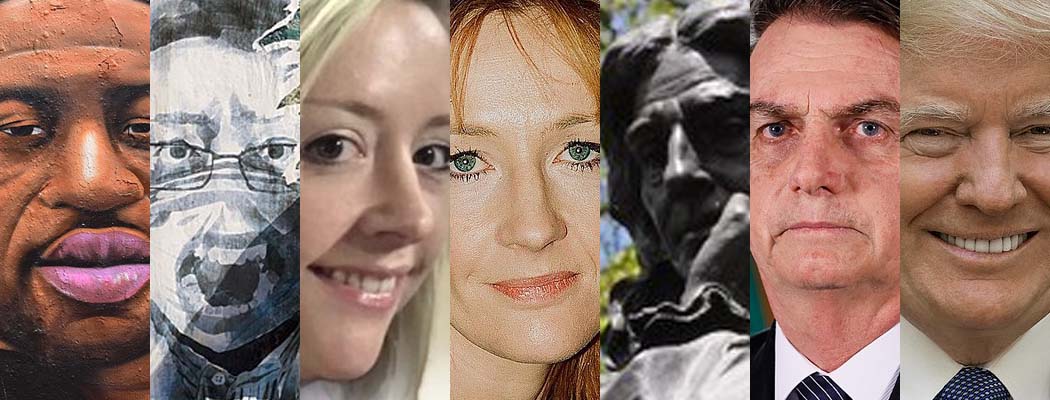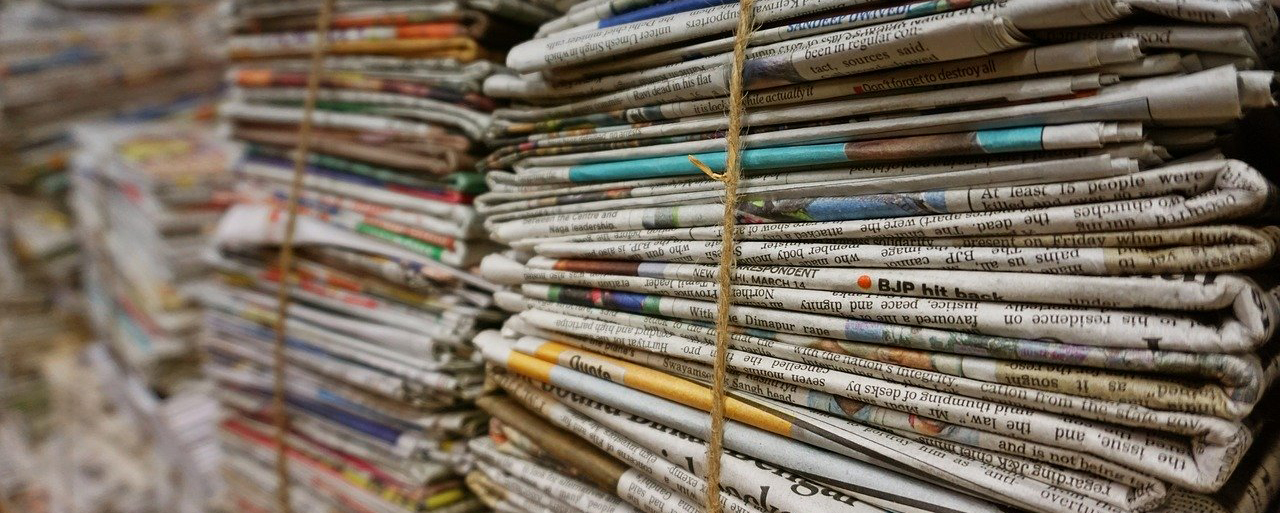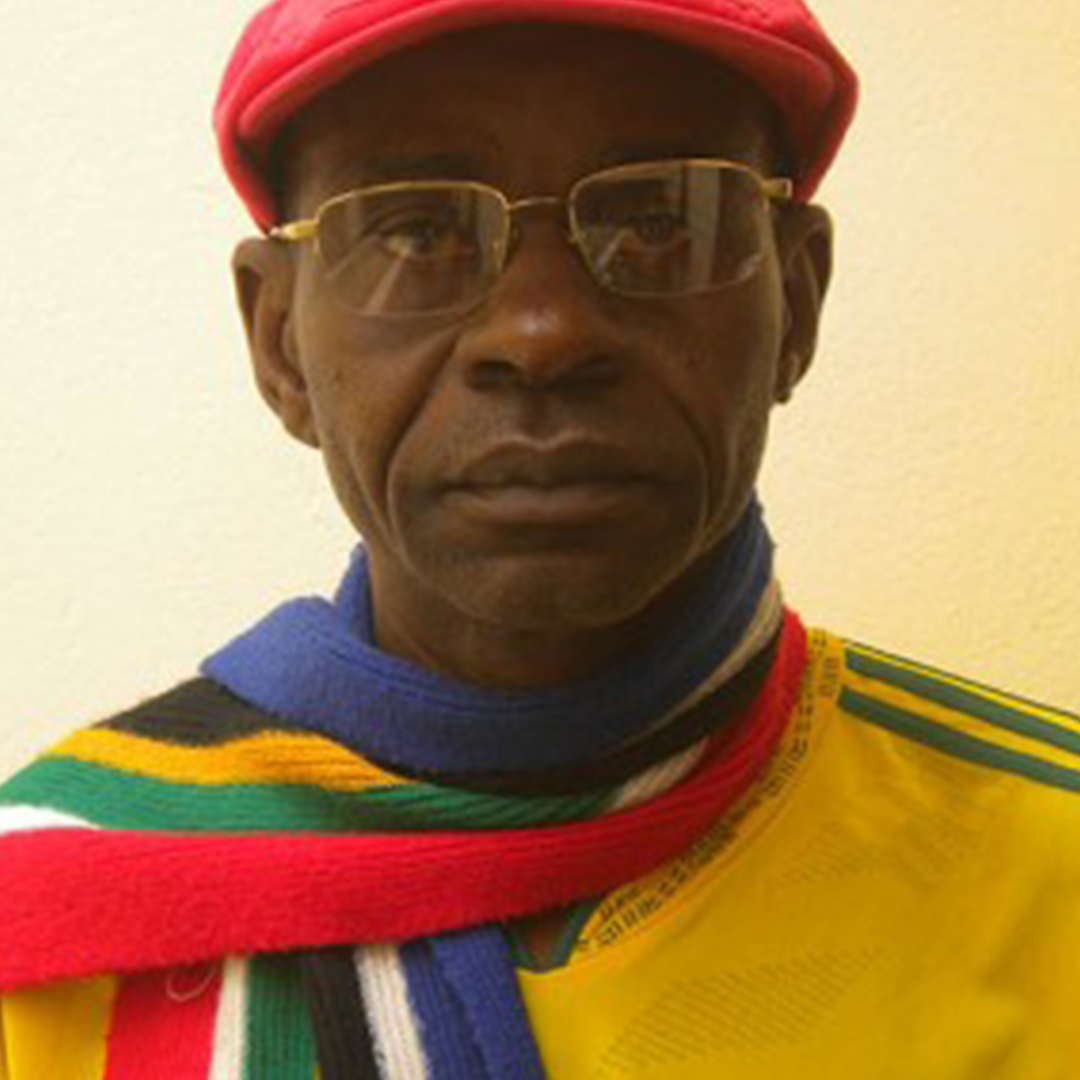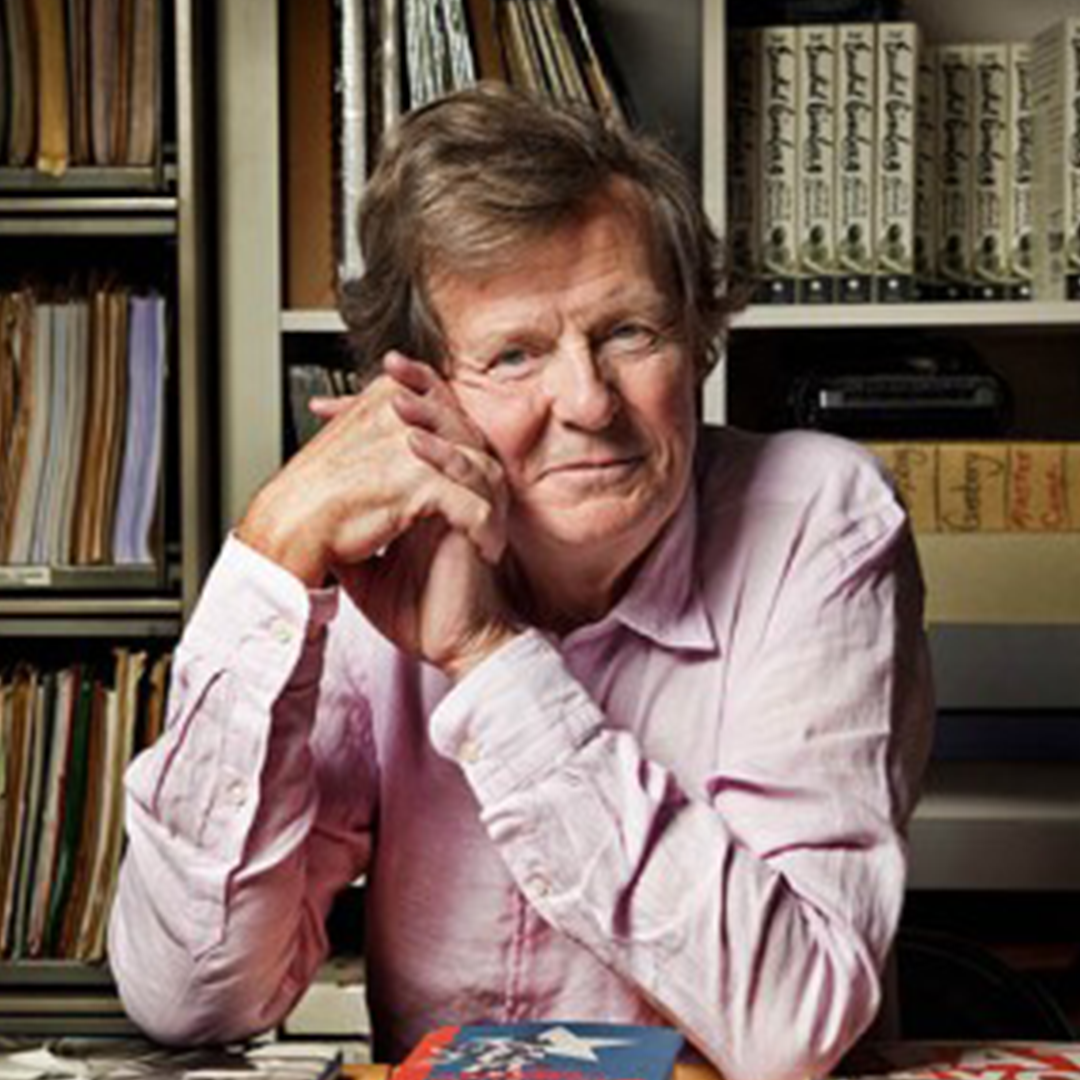19 Jun 20 | Volume 49.02 Summer 2020

CREDIT: Donna Grethen/Ikon
In some ways, it’s a good thing there are no parties at the moment, I would be the person trapping you in the corner, explaining the difference between centralised and decentralised Bluetooth contact-tracing apps, and why de-centralised is better for your privacy, and why some governments are so keen to use the other kind to get more data.
If you’re lucky, we might move the conversation on to how weird it is that Google and Apple are co-operating to design their own, decentralised, privacy-protecting, software for contact-tracing apps – and how it’s even weirder that the two tech giants are effectively forcing governments around the world to use that system.
They want their app to work properly on Apple or Android phones (i.e. most smartphones), because an effective app needs about 80% of smartphone users to run it.
I mean, Silicon Valley protecting our privacy against our own governments? Unprecedented times, indeed.
At this point, let’s suppose that I pause to sip my beer and you make your escape. If we were both using a contact-tracing app, the fact we’d been close together would already have been logged.
We might never have to share that information, especially if neither of us is diagnosed with Covid-19 in the near future, but our social connections have become fodder for state surveillance in a way that would be anathema in normal circumstances.
In South Korea, contact tracing has been very effective at containing Covid-19, but it also publicised the locations of Seoul nightclubs where recent infections took place, which led to the stigmatising of the gay community.
While I have reservations about particular uses of technologies, I accept that our social connections have become the vector for a nasty virus.
I would welcome an efficient system of contact tracing, which means one run by humans even though that makes it even more intrusive.
Coronavirus is a shared problem that needs shared solutions, and I have voluntarily signed up for other apps that request much more personal information to help researchers under-stand and track the pandemic.
But remember the wise words of former Chicago mayor Rahm Emmanuel (and Winston Churchill, and Niccolo Machiavelli): “Never let a good crisis go to waste.”
More importantly, remember that those in power have already remembered that. Measures being taken now to fight a deadly virus might turn out to be handy for other purposes later. Further research that could be useful for future pandemics- who could object to that?
You can read the whole of this article in our Summer 2020 issue, available by print subscription here and by digital subscription here.
18 Jun 20 | Volume 49.02 Summer 2020
The summer 2020 edition of the Index on Censorship podcast looks at just how much of our privacy might we give away – accidentally, on purpose or through force – in the battle against Covid-19.
The podcast also features the world premiere of a lockdown playlet written exclusively for Index on 
Censorship by Katherine Parkinson. Parkinson, best known for her role as Jen Barber in The IT Crowd, also stars as Sarah in the play, alongside actors Harry Peacock and Selina Cadell.
Arturo di Corinto speaks on the podcast about technological terms that have been used more and more in the crisis while Emma Briant discusses around techniques world leaders are using in the run-up to elections to stifle opposition.
Print copies of the magazine are available via print subscription or digital subscription through Exact Editions. Each magazine sale helps Index on Censorship continue its fight for free expression worldwide.
17 Jun 20 | Magazine, Volume 49.02 Summer 2020
[vc_row][vc_column][vc_custom_heading text=”With contributions from Katherine Parkinson, David Hare, Marina Lalovic, Geoff White and Timandra Harkness”][/vc_column][/vc_row][vc_row][vc_column][vc_column_text]
 The Summer 2020 issue of Index on Censorship magazine looks at just how much of our privacy we are giving away right now. Covid-19 has occurred at a time when tech giants and autocrats have already been chipping away at our freedoms. Just how much privacy is left and how much will we now lose? This is a question people in Turkey are really concerned about, as many feel the home was the last refuge for them for privacy, but now contact tracing apps might rid them of that. It’s a similar case for those in China, and the journalist Tianyu M Fang speaks about his own, haphazard experience of using a contact tracing app there. We also have an article from Uganda on the government spies that are everywhere, plus tech experts talking about just how much power apps like Zoom and tech like drones have.
The Summer 2020 issue of Index on Censorship magazine looks at just how much of our privacy we are giving away right now. Covid-19 has occurred at a time when tech giants and autocrats have already been chipping away at our freedoms. Just how much privacy is left and how much will we now lose? This is a question people in Turkey are really concerned about, as many feel the home was the last refuge for them for privacy, but now contact tracing apps might rid them of that. It’s a similar case for those in China, and the journalist Tianyu M Fang speaks about his own, haphazard experience of using a contact tracing app there. We also have an article from Uganda on the government spies that are everywhere, plus tech experts talking about just how much power apps like Zoom and tech like drones have.
In our In Focus section, we interview journalists in Serbia, Hungary and Kashmir who are trying to report the truth in places where the truth can be as dangerous, if not more, than Covid-19. And we have an interview with and poet from the playwright David Hare.
We have a very special culture section in this issue. Three playwrights have written short plays for the magazine around the theme of pandemics. V (formerly Eve Ensler), the author of The Vagina Monologues, takes you to the aftermath of a nuclear disaster; Katherine Parkinson of The IT Crowd writes about online dating during quarantine; Lebanese playwright Lucien Bourjeily is inspired by recent events in his country in his chilling look at protest right now.
[/vc_column_text][/vc_column][/vc_row][vc_row][vc_column][vc_custom_heading text=”Special Report”][vc_column_text]
Back-up plan by Timandra Harkness: Don’t blindly give away more freedoms than you sign up for in the name of tackling the epidemic. They’re hard to reclaim
The eyes of the storm by Issa Sikiti da Silva: Spies are on the streets of Uganda making sure everyone abides by Covid-19 rules. They’re spying on political opposition too. A dispatch from Kampala
Zooming in on privacy concerns by Adam Aiken: Video app Zoom is surging in popularity. In our rush to stay connected, we need to make security checks and not reveal more than we think
Seeing what’s around the corner by Richard Wingfield: Facial recognition technology may be used to create immunity “passports” and other ways of tracking our health status. Are we watching?
Don’t just drone on by Geoff White: If drones are being used to spy on people breaking quarantine rules, what else could they be used for? We investigate
Sending a red signal by Tianyu M Fang: When a contact tracing app went wrong a journalist was forced to stay in their home in China
The not so secret garden by Tom Hodgkinson: Better think twice before bathing naked in the backyard. It’s not just your neighbours that might be watching you. Where next for privacy?
Hackers paradise by Stephen Woodman: Hackers across Latin America are taking advantage of the current crisis to access people’s personal data. If not protected it could spell disaster
Italy’s bad internet connection by Alessio Perrone: Italians have one of the lowest levels of digital skills in Europe and are struggling to understand implications of the new pandemic world
Less than social media by Stefano Pozzebon: El Salvador’s new leader takes a leaf out of the Trump playbook to use Twitter to crush freedoms
Nowhere left to hide by Kaya Genç: Privacy has been eroded in Turkey for many years now. People fear that tackling Covid-19 might take away their last private free space
Open book? by Somak Ghoshal: In India, where people are forced to download a tracking app to get paid, journalists are worried about it also being used to access their contacts
[/vc_column_text][/vc_column][/vc_row][vc_row][vc_column][vc_custom_heading text=”In Focus”][vc_column_text]
Knife-edge politics by Marina Lalovic: An interview with Serbian journalist Ana Lalic, who forced the Serbian government to do a U-Turn
Stage right (and wrong) by Jemimah Steinfeld: The playwright David Hare talks to Index about a very 21st century form of censorship on the stage. Plus a poem of Hare’s published for the first time
Inside story: Hungary’s media silence by Viktória Serdült: What’s it like working as a journalist under the new rules introduced by Hungary’s Viktor Orbán? How hard is it to report?
Life under lockdown: A Kashmiri Journalist by Bilal Hussain: A Kashmiri journalist speaks about the difficulties – personal and professional – of living in the state with an internet shutdown during lockdown
The truth will out by John Lloyd: Journalists need to challenge themselves and fight for media freedoms that are being eroded by autocrats and tech companies
Extremists use virus to curb opposition by Laura Silvia Battaglia: Covid-19 is being used by religious militia as a recruitment tool in Yemen and Iraq. Speaking out as a secular voice is even more challenging
[/vc_column_text][/vc_column][/vc_row][vc_row][vc_column][vc_custom_heading text=”Culture”][vc_column_text]
Masking the truth by V: The writer of The Vagina Monologues (formerly known as Eve Ensler) speaks to Index about attacks on the truth. Plus a new version of her play about living in a nuclear wasteland
Time out by Katherine Parkinson: The star of The IT Crowd discusses online dating and introduces her new play, written for Index, that looks at love and deception online
Life in action by Lucien Bourjeily: The Lebanese director talks to Index about how police brutality has increased in his country and how that informed the story of his new play, published here for the first time
[/vc_column_text][/vc_column][/vc_row][vc_row][vc_column][vc_custom_heading text=”Index around the world”][vc_column_text]
Putting abuse on the map by Orna Herr: The coronavirus crisis has seen a huge rise in media attacks. Index has launched a map to track these
[/vc_column_text][/vc_column][/vc_row][vc_row][vc_column][vc_custom_heading text=”Endnote”][vc_column_text]
Forced out of the closet by Jemimah Steinfeld: As people live out more of their lives online right now, our report highlights how LGBTQ dating apps can put people’s lives at risk
[/vc_column_text][/vc_column][/vc_row][vc_row][vc_column width=”1/3″][vc_custom_heading text=”Subscribe”][vc_column_text]In print, online, in your mailbox, on your iPad.
Subscription options from £18 or just £1.49 in the App Store for a digital issue.
Every subscriber helps support Index on Censorship’s projects around the world.
 SUBSCRIBE NOW[/vc_column_text][/vc_column][vc_column width=”1/3″][vc_custom_heading text=”Read”][vc_column_text]The playwright Arthur Miller wrote an essay for Index in 1978 entitled The Sin of Power. We reproduce it for the first time on our website and theatre director Nicholas Hytner responds to it in the magazine
SUBSCRIBE NOW[/vc_column_text][/vc_column][vc_column width=”1/3″][vc_custom_heading text=”Read”][vc_column_text]The playwright Arthur Miller wrote an essay for Index in 1978 entitled The Sin of Power. We reproduce it for the first time on our website and theatre director Nicholas Hytner responds to it in the magazine
READ HERE[/vc_column_text][/vc_column][vc_column width=”1/3″][vc_custom_heading text=”Listen”][vc_column_text]In the Index on Censorship autumn 2019 podcast, we focus on how travel restrictions at borders are limiting the flow of free thought and ideas. Lewis Jennings and Sally Gimson talk to trans woman and activist Peppermint; San Diego photojournalist Ariana Drehsler and Index’s South Korean correspondent Steven Borowiec
LISTEN HERE[/vc_column_text][/vc_column][/vc_row]
16 Jun 20 | Magazine, Volume 49.02 Summer 2020
Journalist
Issa Sikiti da Silva is an award-winning freelance journalist who has traveled extensively across Africa. Born in Kinshasa, the capital of the Democratic Republic of Congo, he has lived in South Africa and worked as a foreign correspondent in West Africa. His work has been published in nearly 40 media outlets
Actor and playwright
Katherine Parkinson is a Bafta-award winning English actress. She has appeared in several television series, including The IT Crowd and Humans. She has also appeared in such films as How to Lose Friends & Alienate People and The Boat That Rocked, as well as on stage in various high profile West End shows. In 2019 Parkinson’s debut work as a playwright, Sitting, had its London premiere, after a month-long run at the Edinburgh Fringe
Playwright
David Hare is a playwright and film-maker. He has written over thirty stage plays which include Plenty and Pravda (with Howard Brenton). For film and television, he has written nearly thirty screenplays which include Licking Hitler, The Hours, The Reader and Denial. In a millennial poll of the greatest plays of the 20th century, five of the top 100 were his
15 Jun 20 | China, News and features
[vc_row][vc_column][vc_single_image image=”113563″ img_size=”full” add_caption=”yes”][/vc_column][/vc_row][vc_row][vc_column][vc_column_text]An extraordinary event in the history of not just Hong Kong but of the world took place exactly one year ago. A massive crowd, which according to some estimates was around two million strong, marched through the streets of the most cosmopolitan city on the China coast to call for the withdrawal of a proposed extradition bill that many felt would undermine the rule of law in Hong Kong. They also took action to express their anger at the brutality police had shown in dealing with a protest a few days before. And they demonstrated to show, more generally, that they were concerned that key features of local life that made the city different from its mainland neighbours, including greater freedom of speech and freedom of assembly, were under threat.
The marchers marched because they felt that the Chinese Communist Party leadership was failing to respect the second two words in the “One Country, Two System” framework that was supposed to structure relations between Beijing and Hong Kong for the first 50 years after the 1997 Handover that changed the latter from a British colony to a Special Administrative Region of the People’s Republic of China. Xi Jinping and company were failing to respect the promise that Hong Kong would enjoy a “high degree of autonomy” until 2047. The marchers marched because they felt that Hong Kong’s Chief Executive Carrie Lam, chosen through an election in which fewer than 2,000 local residents were eligible to vote, was aiding and abetting this process. She was, in fact, the one who was championing the hated extradition bill, which would allow activists to be taken over the border to stand trial on the mainland if Beijing wished this to happen.
What made the march extraordinary in world historical terms? Even in an era that is witnessing wave after wave of protest struggles, the size of the crowd was unusual. There are few if any examples of roughly a quarter of the members of a sizeable political community taking to the streets at once. Yet, as Hong Kong is home to fewer than eight million people, that is what happened on 16 June 2019.
To mark that anniversary, we are publishing an excerpt from the closing pages of Vigil: Hong Kong on the Brink, a work written by historian Jeffrey Wasserstrom, with contributions by the journalist Amy Hawkins. Published earlier this year by Columbia Global Reports, it places that massive mid-June march and related 2019 events into historical and comparative perspective.
Vigil – whose lead author has recently contributed both a short story and two commentaries to Index and spoke last year at an Index event on a panel with the Guardian’s Tania Branigan that focused on the 30th anniversary of Tiananmen – makes particularly fitting reading right now. This is because in recent weeks Beijing and its local allies have made their most disturbing moves yet to destroy what little is left of the “autonomy” Hong Kong was promised. Showing disrespect for the Chinese national anthem has been criminalised, for example; highly respected figures in the democracy movement known for consistently advocating moderate tactics have been arrested; and Beijing has announced it will impose a sweeping new anti-sedition law on Hong Kong.
Resistance continues. Activists face greater risks than ever, however, as mass arrests and police brutality have become routine. In line with arguments in Vigil, the Hong Kong democracy movement increasingly resembles the against-long-odds efforts to combat autocratic rule waged in Poland after martial law was imposed there late in 1981 or the protracted anti-colonial struggle against powerful, recalcitrant empires that have been carried out in many parts of the world.
***
Water by Jeffrey Wasserstrom
Hong Kong has long been a place with varied and deep associations with water. “Harbor” is the second term in its two-character name, coming after a word most often translated as “fragrant”. Fish and seafood figure centrally in the storied local cuisine. Hong Kong first gained economic importance due to its role as a hub of trade involving vessels that moved goods across rivers and seas. Humid air, mist, and the torrents of water that lash the city during typhoons are key parts of the local climate. Umbrellas served as protest symbols in 2014. While the city teetered on the brink in 2019, activists striving to create a new alternative world in the streets and in malls and in airport arrival and departure halls in the midst of scenes of destruction, urged one another to “be water,” to adapt their tactics continually to changing circumstances. To resemble “water” means to be flexible in one’s actions, going one place but quickly heading to another if there is too much resistance. The idea can be traced back to longstanding Chinese philosophical traditions, especially Daoism (though metaphors linked to water are important in Confucian texts as well). It has a more specific referent, though, to perhaps the most famous Hong Konger, martial artist and movie star Bruce Lee. “Don’t get set into one form, adapt it and build your own, and let it grow. Be like water,” he said. “Now water can flow, or it can crash! Be water, my friend.”
There’s also the metaphor of the hundred-year flood, the (inaccurate) myth that rivers overflow their banks once a century. Just as the 2019 protest movement was underway in Hong Kong, the author Adam Hochschild published a powerful essay about the parallels of American politics in the years 1919 and 2019. Hochschild conjured up the image of a very particular sort of hundred-year flood: the unleashing of ugly nativist rhetoric in America during the presidency of Woodrow Wilson, and now again during that of Donald Trump. Focusing as I have on the events treated in the preceding chapters on my mind, his essay set me wondering whether there were parallels and imperfect analogies linked to events of a century ago worth considering when trying to make sense of the current Hong Kong crisis. There are, I think—providing that we place the past of Shanghai, once the most cosmopolitan city on the China coast, beside Hong Kong’s present.
What exactly happened in that great port of the Yangzi Delta one hundred years ago? There was a dramatic series of protests in which young people took leading roles. There was a general strike. On the whole, the protesters behaved in peaceful ways, but there were some ugly incidents, during which they roughed up people they viewed as outsiders. One goal of the movement was to stop a widely disliked document from going into effect. The protesters directed much of their ire at government officials they viewed as immoral and too ready to do the bidding of men in a distant capital. They also called for the release of protesters who had been arrested and complained about police using too much force in dealing with demonstrators. The movement became in large part a fight for the right to speak out. The protests in the city were preceded by, built on, and expanded a repertoire of action developed during a series of earlier struggles, as some participants in the 1919 demonstrations had been part of shorter waves of activism in 1915 and 1918 and in some cases even in 1905. New tactics were added to the mix in 1919. So were new symbols: for example, a distinctive type of headwear became associated with the protests, as students eschewed wearing straw hats made in Japan for locally made cotton ones.
This analogy is far from perfect. The Shanghai protests of 1919 were part of a nationwide struggle, known as the May Fourth Movement, in honor of the day of the year’s first major demonstration, which took place in Beijing. The current crisis, by contrast, began and has stayed centered in Hong Kong, as did the 2014 Umbrella Movement before it. There have been many more arrests this year, and there were no paving stones thrown or fires set by activists in Shanghai a century ago. The document the protesters of 1919 disliked was not a local bill but an international accord: The Treaty of Versailles, the post–World War I agreement that they objected to because it passed control of former German possessions in Shandong Province to Japan rather than returning them to Chinese control. While one student died from the injuries he received at the hands of the police during the initial protest on May 4, 1919, many fewer demonstrators and bystanders were injured in any part of China one hundred years ago than have been injured in Hong Kong during 2019.
The protesters of 1919 even succeeded in gaining more concessions from the warlords in control of Beijing than those of 2019 have managed to secure. In the immediate wake of the Shanghai General Strike, which stands out as one of the most important of all May Fourth Movement collective actions, three officials that the students claimed were too cozy with Tokyo were removed from their positions and the protesters arrested in Beijing were released. The Chinese delegation to the Paris Peace Conference, who had a role in the proceedings as both China and Japan had come into World War I on the side of the Allies, refused to sign the Treaty of Versailles. These successes by the protesters help to explain why the May Fourth Movement has long been hailed in China as a triumphant struggle. By contrast, while Carrie Lam withdrew the extradition law in September, there have been no moves toward concession regarding the other key demands of the protesters. The authorities have not released those who have been arrested, appointed an independent commission to investigate allegations of police violence, nor retracted their description of early protests as “riots.” Lam has not resigned. There is no universal suffrage in Hong Kong.
But while the May Fourth Movement has a hallowed place in Chinese history now, it was for decades considered largely a failure. While the Chinese delegation to Paris refused to sign the Treaty of Versailles, the accord went into effect anyway. Former German territories in Shandong fell under Japanese control. The May Fourth activists were no more successful at preventing territory they cared about from going from the control of one colonial power to another. And the Japanese seizure of Shandong, which was preceded by its seizing of Korea and Taiwan, was followed in 1931 by Tokyo taking Manchuria and later moving further into China and other neighboring lands.
Japan asserted in many cases that it was not taking over territories, but freeing them from colonial rule, and allowing them to be governed at last by locals. They made this claim about Shanghai, proclaiming in the early 1940s that it was finally liberated from all forms of foreign control, even as Japanese troops and Chinese puppet officials control the city. They made this claim about Manchuria as they put Pu Yi, the ethnically Manchu former Last Emperor of the Qing Dynasty, on the throne, as a ruler beholden to Tokyo. They did not talk of a single empire with multiple systems, but rather of a Greater East Asian Co-Prosperity Sphere. Beijing, too, does not talk of having an empire, but its handling of Tibet and Xinjiang rhymes with Tokyo’s imperial approach. Beijing’s dreams for Hong Kong, which are nightmares to those on the streets, rhyme with Tokyo’s proclamations about Shanghai. The terms are new— “One Country, Two Systems,” “Greater Bay Area”—but when it comes to fantasies and raw power, there are disturbing echoes.
History does not repeat itself. In 1919, the Western powers actively aided Japan’s move into Shandong. Viewed within a hundred-year framework, the limited international concern about Hong Kong’s fate is deeply worrying. So, too, are the signals some world leaders, including Vladimir Putin and Donald J. Trump, have been sending to Xi Jinping during the current crisis, which convey a sense that whatever he does will be just fine with them, as long as it does not impinge on their plans for their own nations. Hundred-year floods can wreak many different kinds of damage.
Vigil: Hong Kong on the Brink was published in February 2020. To read more about the book click here[/vc_column_text][/vc_column][/vc_row]
15 Jun 20 | Press Releases
Index on Censorship has today (Monday 15th June) announced the appointment of Ruth Smeeth as the organisation’s new chief executive.
Ruth Smeeth was the MP for Stoke-on-Trent-North from 2015 to 2019, and prior to that was deputy director at HOPE not hate.
Ruth Smeeth, chief executive, Index on Censorship, said:
“I’m excited to be joining Index on Censorship at a time when the organisation’s work to protect free speech is more important than ever.
“As governments and citizens seek to navigate increasingly complex and intimidating global issues – from Covid-19 to systemic racism – we’ve seen just how easily our fundamental right to freedom of expression can be threatened.
“From the arrests of journalists covering Black Lives Matter protests in America to the silencing of medics in China who sought to inform the world about the effects of Covid-19, it’s clear that the fight to enshrine and protect the right to free speech across the world has not yet been won.
“And this is not just an issue to be tackled abroad. Here in the UK, we’ve seen increasing threats to journalistic freedom as individuals are hounded and attacked simply for doing their jobs.
“Too often, free speech is portrayed as a fringe or foreign issue. Nothing could be further from the truth. Freedom of expression should be a mainstream concern, and it is time for a proper debate and discussion about its importance – and its limitations – in a rapidly changing world.
“Index on Censorship is uniquely placed to lead this discussion, alongside the campaign to protect freedom of expression here in the UK and abroad. I look forward to working with stakeholders and supporters to do just that”.
Trevor Phillips, chair, Index on Censorship, said:
“Ruth brings a wealth of relevant knowledge, experience and above all, courage to the organisation at a pivotal moment for Index on Censorship. Her independence of mind and non-partisan approach to freedom of expression is exactly what is needed at a time when the voices of people from all backgrounds need to be heard – not least those from minorities.
“Ruth’s experience, both as an MP and as a campaigner against fascism and racism, will enable her to champion our cause as we seek to tackle ever more frequent challenges to freedom of expression both across the globe and in every medium”.
Kate Maltby, deputy chair, Index on Censorship, said:
“I could not be more delighted to welcome Ruth as our new chief executive at Index on Censorship. Ruth has a proven record as a campaigner, unwavering in her principles and exceptional in her ability to build cross-partisan coalitions that make substantive change.
“Index on Censorship was founded in 1972, and in its first decades provided lifelines to dissidents as they endured harassment in Soviet regimes. As Index approaches its fiftieth birthday, it can sometimes seem that both progressive and conservative forces forget the lessons of those years.
“With Ruth at the helm, I am confident that Index on Censorship will play a central role in rebuilding an open, civic and intellectually diverse public sphere. Freedom of expression needs tough defenders, and in Ruth we have one.”
Media enquiries: Luke Holland, 07447 008098, [email protected].
15 Jun 20 | News and features, Statements
[vc_row][vc_column][vc_column_text]
Maria Ressa, a former CNN bureau chief and one of four journalists named Time’s Person of the Year in 2018, has today been given a sentence of up to six years in prison by a Filipino court, under a cyber libel law that didn’t even exist when the article in question was published.
Her journalism has been about fighting for the right to criticise power, and to hold her government to account.
Ressa is one of four journalists named Time’s Person of the Year in 2018. Ressa and her co-defendent Reynaldo Santos were found guilty of cyber libel at the Manila Regional Trial Court.
Ms Ressa was sentenced to a minimum of 6 months and a maximum of 6 years imprisonment and granted bail pending appeal. A fine of approximately $8,000 (P400,000) was also imposed.
Index on Censorship and English PEN condemn this decision which is part of a campaign to silence dissenting voices in the Philippines.
“This campaign is a frightening indictment of the pressures on journalists to stop reporting. We call on those who care about media freedom globally to stand up and take notice. This is not just about one journalist in one place, this has significance for journalism everywhere as part of a trend where we see reporters put under enormous pressures to stop covering stories” said Rachael Jolley, Index editor-in-chief.
Daniel Gorman, director of English PEN, said: “Today is a terrible day for those who care about freedom of expression and a free press, in the Philippines and across the world. This judgement aims to intimidate journalists and writers working across the Philippines. English PEN stands with Maria Ressa, and calls for the government of the Philippines to drop these spurious charges immediately.”
Through the past few years Index and English PEN has worked to bring attention to escalating restrictions on media freedom in the Philippines. Ressa and her team have written for Index on Censorship magazine, and Ressa was a judge at the annual Index on Censorship awards.
Seven further cases remain pending against Ms Ressa. The cases against Ms Ressa, which allege illegal foreign media ownership of her news site and alleged tax offences, are equally spurious, and an act of retaliation by the current administration against her reporting.
Reporting by the Rappler website, which Ressa co-founded as CEO, has exposed corruption and abuses, including the execution of thousands of Filipinos in the name of a war on drugs.
On behalf of her legal team, Amal Clooney said of today’s verdict: “Today a court in the Philippines became complicit in a sinister action to silence a journalist for exposing corruption and abuse. This conviction is an affront to the rule of law, a stark warning to the press, and a blow to democracy in the Philippines. I hope that the appeals court will set the record straight in this case.”
The National Union of Journalists of the Philippines has characterised the cases against Ms Ressa as an act of “persecution” by a “bully government.”
English PEN and Index on Censorship calls for the government of the Philippines to drop their cases against Maria Ressa and her co-defendants. We stand with them, along with all writers standing for a free media in the Philippines.
This statement is signed and supported by other organisations including:
Civicus
[/vc_column_text][/vc_column][/vc_row]
15 Jun 20 | News and features

Credit: Singlespeedfahrer/Petr Vodicka/Amy Fenton/Executive Office of the President/ Philip Halling/Isac Nóbrega/The White House
George Floyd. Dr Li Wenliang. Amy Fenton. JK Rowling. Edward Colston. Jair Bolsonaro. Donald Trump.
Love or loathe these people, the actions of each have opened a new debate in 2020. From the Black Lives Matter movement to the debate on sexuality, to the freedom of the press in the UK, to the role of Government and state actors hiding details of a public health emergency from their citizens.
If we have learnt anything at all from the turmoil that 2020 has given the world, it’s that free speech is vital; free expression is central to who we are and; that journalistic freedom is integral to the type of global society we aspire to live in.
Today, I’m joining the team at Index on Censorship as its new CEO. Index has spent the last half century providing a voice for the voiceless. Giving those who live under repressive regimes a platform to tell the world of their experiences and enabling artists to share their work with the world when they can’t share it with their neighbours.
Our work has never been more important. There have been over 200 attacks on media freedom across the globe, since the end of March this year, related to Covid-19. In the US alone there have been over 400 press freedom ‘incidents’ since the murder of George Floyd, including 58 arrests of journalists, 86 physical attacks and 52 tear gassings. In the UK, this weekend, on the streets of London we saw journalists attacked while reporting on a far-right demo in our capital.
My role in the months ahead is to highlight the threats to free speech, both in the UK and further afield, to celebrate free speech, to open a debate on what free speech should look like in the 21st century and most importantly to keep providing a platform for those people who can’t have one in their own country.
The editorial in the first edition of Index on Censorship in 1972, stated: There is a real danger… of a journal like INDEX turning into a bulletin of frustration. But then, on the other hand, there is the magnificent resilience and inexhaustible resourcefulness of the human spirit in adversity.
With you, the team at Index will continue to fight against the frustration while celebrating the magnificent resilience of the human spirit. And I can’t wait to get stuck in.
Ruth
PS Join us to protect and promote freedom of speech in the UK and across the world by making a donation.
12 Jun 20 | Covid 19 and freedom of expression, News and features

Jordan, the UAE, Oman, Morocco, Yemen and Iran. It is the sort of list that Index might compile for any number of attacks on freedom of expression. In this instance they are all countries that have chosen to ban the printing of newspapers and other media during the current Covid-19 crisis, ostensibly to contain the spread of the virus.
This trend of governments using this pandemic to close down newsprint is one of a series of trends that we have identified in compiling Index’s mapping project . The map, created in conjunction with Justice for Journalists Foundation, tracks media violations during the coronavirus crisis.
On 17 March, the Jordanian Council of Ministers ordered newspapers to stop producing print editions for two weeks in a bid to stop the spread of the coronavirus. Minister of state for media affairs Amjad Adaileh said at a press conference that the decision was “because they help the transmission of the pandemic”. On 21 March, the UAE’s National Media Council announced a temporary ban on printing all newspapers and magazines except for regular subscribers of the publications and large outlets in shopping centres.
The council said the decision was “in line with the precautionary measures taken to contain the spread of the virus. Several people touching the same printed material has the potential to disseminate the virus.”
Over the next week, Morocco, the Sultanate of Oman, Yemen and Iran all followed suit, forcing publishers to produce copies online. In April, the Indian state of Maharashtra did things differently; it didn’t ban print publications but banned their delivery to people’s doors.
In early April, a number of Tunisian publishers suspended printing a number of daily and weekly publications.
Yet there is mounting evidence that there is little or no risk of catching the virus from newspapers, which has led Index to suspect that Covid-19 is being used as an excuse.
The World Health Organisation is reported to have said that the risk of contracting the virus from newsprint is “infinitely small”.
Professor George Lomonossoff, a virologist at the John Innes Centre said in a TV interview: “Newspapers are pretty sterile because of the way they are printed and the process they’ve been through. Traditionally, people have eaten fish and chips out of them for that very reason. So all of the ink and the print makes them actually quite sterile. The chances of that are infinitesimal.”
Former director general of the Indian Council of Medical Research N K Ganguly told the Deccan Herald: “It is more of a perception than reality that COVID-19 virus spreads through newspapers.
The risk of catching the virus from newsprint seems remote but some say the fear of it spreading that way is causing people not to buy print newspapers.
Vincent Peyrègne, CEO of the World Association of News Publishers, (WAN-IFRA) said:
“Today, modern newspaper production is fully automated from end to end. There is hardly human intervention until the last mile distribution point. The ink and solvent used in newspaper printing act as a disinfectant to a large extent and there is no evidence to show that newspapers are carriers of the virus. The rumours that the virus can spread through newspapers is also having a disastrous effect, and newspaper as a source of transmission of the virus is very remote.”
It is perhaps telling that the countries which appear high on various rankings of press freedom have not joined in with banning newsprint.
Peyrègne said these countries “banned print newspapers with the fallacious, or misleading argument that they needed to protect the health of citizens”.
“Any banning of media or placing of restrictions on journalists or media organisations is not only an attack on the freedom to inform and to be informed, but it also carries serious consequences in terms of responsibility for contributing to one of the most serious humanitarian and economic crises we have experienced in the last one hundred years. Nevertheless, many authoritarian countries feel that the crisis is the perfect excuse to crack down on free speech, silence their critics and accelerate repressive measures,” said Peyrègne.
The ban on print editions of newspapers and magazines has contributed to a devastating effect on circulations.
Peyrègne said: “The month of April hit the circulation of the daily press hard, due to confinement, the closure of sales outlets and the shutdown of transport. Generally speaking, readership and subscription surged dramatically during the lockdown. Some segments were obviously more affected than others.”
In the UK, the auditing body ABC has told publishers they no longer have to reveal their print circulations, a move which media trade journal Press Gazette says may mean we “never get the full picture of the impact of coronavirus on newspaper sales”. It says that News UK is the only major publisher to say it will not provide the figures so far.
The crisis has also seen a dramatic acceleration in the move of local newspapers away from print. Many local newspapers rely on advertising from their communities and most of these businesses have been forced to close during the crisis, sucking revenues from the publishers.
News Corp Australia announced at the end of May that 76 of its local and regional newspapers would become digital only while 36 others would cease publication permanently.
In the UK, JPIMedia said it was temporarily stopping the print publication of a dozen of its titles, including the MK Citizen in Milton Keynes and the News Guardian in North Tyneside.
In Egypt, Sawt Al-Azhar, Veto, Al-Youm Al-Gadid and Iskan Misr have all temporarily stopped producing print editions.
It is good to see that some countries, including Morocco, Tunisia and Jordan have reversed their bans but such incidents represent just a small part of wider crackdowns on media freedom that we are witnessing at this time of crisis and which we are reporting on our interactive map.
Newspapers play a vital role in informing communities, particularly at times of crisis, and the combination of misguided bans and the poor financial viability of some titles will be a loss that will be keenly felt.
Read more about Index’s mapping media freedom during Covid-19 project.
11 Jun 20 | Statements
President Donald Trump
The White House
1600 Pennsylvania Avenue, NW
Washington, DC 20500via emailDear President Trump,We are writing to you as journalists, press freedom organizations, and industry groups to express our deep dismay at the recent violence perpetrated against journalists in the United States as they have sought to report on mass protests across the country. On behalf of the 72 groups listed below, we urge you to speak out forcefully against these attacks and in support of the rights of journalists to report freely, as guaranteed by the First Amendment of the U.S. Constitution.
The United States’ history of protecting free expression and defending and protecting the rights of journalists is much admired beyond U.S. borders. This is born out of a recognition that journalists serve as independent monitors of social and political developments, and are essential to democracy, transparency, and accountability.
Attacks on journalists in the U.S. threaten to undermine this commitment. The U.S. Press Freedom Tracker has received reports of at least 320 violations of press freedom across the country since protests demanding an end to police brutality and calling for social justice broke out on May 26. It is vital that state and local government officials take steps to ensure such violations never happen again, and that the perpetrators are held to account.
We call on you to send a clear and unambiguous message across the country and around the world about the importance of the press freedom and work of the press. Local leaders need to hear unambiguously from you that they have a responsibility to fully investigate these attacks, protect journalists, and ensure that they can work unobstructed and without fear of injury or reprisal.
Press freedom in the United States is critical to people around the world. Thousands of foreign correspondents are based in Washington D.C. and throughout the U.S., where they are tasked with telling the story of America to their publics back home. The ability of journalists to work freely in the U.S. creates a more enlightened global citizenry.
What happens in the United States also has repercussions for journalists around the world, including American correspondents. When the U.S. backslides it sends a green light to authoritarian-leaning leaders around the world to restrict the press and the free flow of information.
Authoritarian regimes in China, Iran, and Turkey have already opportunistically spoken out about the heavy-handed police tactics used here, using the crackdown on the press in this country to legitimize their own repression of independent journalism.
Instead of condemning journalists and the media, we urge you to commend and celebrate them as the embodiment of the First Amendment, which is the envy of so many countries around the world.
Sincerely,
Acclaim Nigeria Magazine (ANM)
Afghanistan Journalists Center (AFJC)
Aliansi Jurnalis Independen (AJI) Indonesia
Americans for Democracy and Human Rights in Bahrain
Arab Reporters for Investigative Journalism (ARIJ)
ARTICLE 19
Associação Brasileira de Jornalismo Investigativo (Abraji)
Association for International Broadcasting
Bangladesh NGOs Network for Radio and Communication
Bytes 4 All
Cairo Institute for Human Rights Studies
Cambodian Center for Human Rights (CCHR)
Canadian Media Lawyers’ Association
Cartoonist Rights Network International (CRNI)
Centre for Law and Democracy
Centre for Media Studies and Peacebuilding (CEMESP)
Committee to Protect Journalists
Community Media Forum Europe (CMFE)
DW Akademie
Free Media Movement – Sri Lanka
Free Press Unlimited
Freedom of Expression Institute (FXI)
Fundación Gabo (Gabriel García Márquez Foundation)
Fundación para la Libertad de Prensa (FLIP)
Global Forum for Media Development (GFMD)
Global Investigative Journalism Network (GIJN)
Global Voices
Hong Kong Journalists Association
Independent Journalism Center
Independent Journalism Center (IJC)
Index on Censorship
Initiative for Freedom of Expression – Turkey (IFoX)
INSI – international News Safety Institute
Institute for Regional Media and Information
Instituto Prensa y Sociedad Venezuela
International Center for Journalists (ICFJ)
International Federation of Journalists
International Media Development Advisers (IMDA)
International Media Support (IMS)
International Press Institute
International Women’s Media Foundation
Internews
Media Focus International (MFI)
Media Foundation for West Africa
Media Institute Southern Africa – Zimbabwe
Media Matters for Democracy (MMFD)
Media Watch
Media, Entertainment & Arts Alliance (MEAA)
Metamorphosis Foundation
Newsgain
Norwegian PEN
Organized Crime and Corruption Reporting Project (OCCRP)
Pacific Islands News Association (PINA)
Pakistan Press Foundation
Palestinian Center for Development and Media Freedoms (MADA)
PEN America
PEN International
Press Union of Liberia
Project Syndicate
Pulitzer Center on Crisis Reporting
Reporters Without Borders
Rory Peck Trust
Rural Media Network Pakistan
Samir Kassir Foundation – SKeyes Center for Media and Cultural Freedom
SembraMedia
Social Media Exchange (SMEX)
Somali Media Women Association (SOMWA).
South East Europe Media Organisation (SEEMO)
South East European Network for Professionalization of Media (SEENPM)
The Center for Independent Journalism, Romania
World Association of Community Radio Broadcasters (AMARC)
World Association of News Publishers (WAN-IFRA)
CC:
Vice President Michael R. Pence
Kayleigh McEnany, White House Press Secretary Ambassador
Kelly Craft, U.S. Permanent Representative to the United Nations
10 Jun 20 | News and features
[vc_row][vc_column][vc_column_text]

Statue of Edward Colston in Bristol, which has since been taken down. Credit: Philip Halling
The most apt description of the impact of the death of George Floyd, the 46-year-old African American man who died on 25 May when a police officer leant on his neck and back for eight minutes and 46 seconds, came from a child. Floyd’s six-year-old daughter Ginna simply said: “Daddy changed the world!”
She’s right. Floyd’s death has sparked large-scale, public Black Lives Matter protests around the world, including in the UK. And it was in the UK that Black Lives Matter protesters in Bristol pulled down the statue of slave trader Edward Colston last weekend. It was then rolled through the city centre and dumped in Bristol Harbour.
Colston was a member of the Royal Africa Company, which had a monopoly on the slave trade at the time and is believed to be responsible for an estimated 30,000 African deaths.
The toppling of the statue has been both celebrated and criticised. Bristol Mayor Marvin Rees, for example, condemned the manner of the statue’s removal, though he admitted that the statue’s presence was an “affront” to black people in the city.
Some have attacked the action as one that is silencing and could set a bad precedent. But was it?
Removing a statue is symbolic and as the national debate about history, slavery and empire shows, it also very significant. The prime minister and other officials have stressed that it is important to follow process in these matters. But the people of Bristol had tried. For years, there had been an ongoing discussion about removing or adding a plaque to contextualise the statue. All efforts had reached a stalemate and frustration grew as suggested language for a plaque was watered down in efforts, some felt, to minimise his crimes. In the end, the whole thing came down and those who tried to stymy efforts to tell a fuller version of history found themselves swept aside as history was made.
It is perhaps in an effort to forestall similar actions that local Labour councils across England and Wales have indicated that they intend to set up commissions to look at other monuments and explore which ones ought to be taken down. This is not a bad thing, but if the public is not engaged in the process then a valuable moment for public education and civic participation could be lost. The act of tearing down of Edward Colston’s statue arguably did more to further a public discussion of slavery, history and racism than the statue ever did standing serenely in place all these years.
It’s an important discussion because putting up a statue is also a political act. Those who decry the removal of statues as erasing history might consider that in the many cases where statues represent editing or curating the past, that is itself a form of erasure. Colston’s statue was erected long after his death and is not even his true likeness. The honouring of the man has less to do with the facts of his life and career than the fact that he had given a lot of money to his home town, for which he was described in no less glowing terms than as one “of the most virtuous and wise” sons of Bristol.
Statues are also about who we wish to hold up for admiration and that is where history is dialogue with the present. It makes sense to discuss to whom we want to draw our eye upwards, to stand head and shoulders above the rest of us? There is potential for a rich discussion on which statues could be added, moved to museums, contextualised or quietly brought down to earth.
Parliament Square is now home to a statue of Nelson Mandela, who was once considered a terrorist by the Conservative government, and Millicent Fawcett, who as a suffragette endured much opposition and criticism of the group’s methods of direct action. With the passage of time, views on these historical figures have changed. The graffiti artist Banksy has suggested putting Colston back on his plinth as part of a new sculpture depicting Black Lives Matter protesters pulling him down. We may yet see public art memorialising these protesters in years to come.
Where will it end? Some ask. The answer is it never ends. Humans are dynamic and creative creatures, always making history and looking back over it. The prevailing view on Colston’s removal is one of broad agreement with the result but not the methods, the familiar “Yes – but not like that.” But if it was comfortable, it wouldn’t be a protest. Nobody advocates violence, but there is another familiar saying: “Power concedes nothing without a demand.”
The issue of statues is by no means the most important thing at this moment. But it’s not without significance, otherwise he wouldn’t have been there in the first place. We need more discussion about statues, their symbolism and the history around them, not less. Colston’s removal has done that.
Kiri Kankhwende is a freelance journalist who writes about politics, race and human rights
[/vc_column_text][/vc_column][/vc_row][vc_row][vc_column][/vc_column][/vc_row]
10 Jun 20 | News and features, Statements
[vc_row][vc_column][vc_column_text]

Nabeel Rajab at the 2012 Freedom of Expression Awards
Index welcomes the news that Bahraini human rights activist Nabeel Rajab has been freed from prison. Rajab, the president of the Bahrain Center for Human Rights and an Index on Censorship Freedom of Expression Award winner in 2012, had been held since 2016 and convicted of offences including “spreading fake news”.
Rajab had tweeted about torture in Bahrain’s jails and had criticised the war in Yemen. As Index wrote during one of his many appeals: “Those are not crimes. Opinions are not crimes.”
Rajab has suffered relentless harassment since his involvement as a peaceful activist during the Bahrain uprising in 2011, during which he was in and out of prison on numerous occasions. He was then in prison on a continual basis from June 2016, and was sentenced in all to seven years in prison across two separate trials. In February 2018 he was sentenced to five years in prison for tweeting, which was added to a two-year conviction in June 2017 for “broadcasting fake news” relating to television interviews he gave in 2015.
On Tuesday, Rajab’s lawyer said he would serve the remainder of his sentence in a non-custodial setting.
“This is amazing news. Index on Censorship has been pushing for this for a long time,” said Rachael Jolley, editor-in-chief at Index.
But while we welcome news of his release and reunion with his family, we still demand that all charges are dropped against Rajab, as well as all others who are imprisoned in Bahrain simply for their views and advocacy.
This year, one of the co-winners of the Index on Censorship Freedom of Expression Awards Campaigning category was Sayed Ahmed Alwadaei, a Bahraini activist currently living in exile in the UK who is the director of advocacy at the Bahrain Institute for Rights and Democracy. As Alwadaei said when accepting the award in April:
“The price for expressing yourself in Bahrain remains very high. I myself ended up in prison for speaking to the press during the Arab Spring.”[/vc_column_text][/vc_column][/vc_row][vc_row][vc_column width=”3/4”][/vc_column][/vc_row]




 The Summer 2020 issue of Index on Censorship magazine looks at just how much of our privacy we are giving away right now. Covid-19 has occurred at a time when tech giants and autocrats have already been chipping away at our freedoms. Just how much privacy is left and how much will we now lose? This is a question
The Summer 2020 issue of Index on Censorship magazine looks at just how much of our privacy we are giving away right now. Covid-19 has occurred at a time when tech giants and autocrats have already been chipping away at our freedoms. Just how much privacy is left and how much will we now lose? This is a question 





